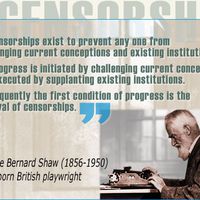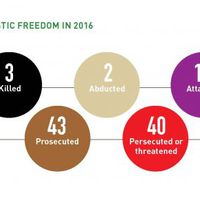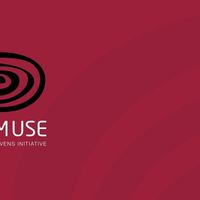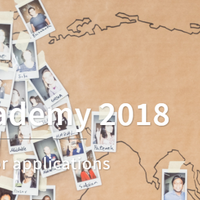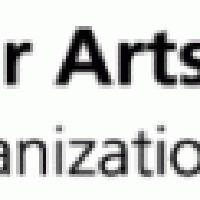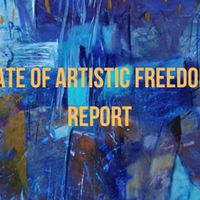Towards a renewed interest in arts and human rights?
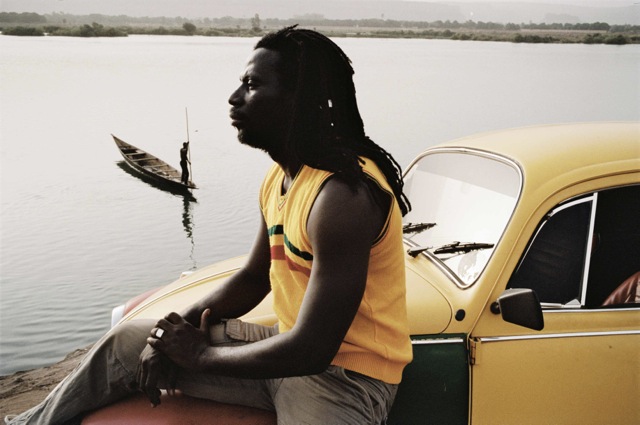 Edited and compiled by members of the International Coalition for Arts, Human Rights and Social Justice (ICARJ) Victoria Ivanova (TransEuropeHalles), Sidd Joag (freeDimensional), Rosario Pavese (LA Net Art for Social Transformation), Ole Reitov (Freemuse) and Mary Ann DeVlieg (IETM), the article presents insights on the Artsfex-Copenhagen Summit on Artistic Freedom of Expression held in Copenhagen, December 9-11 2011.
Edited and compiled by members of the International Coalition for Arts, Human Rights and Social Justice (ICARJ) Victoria Ivanova (TransEuropeHalles), Sidd Joag (freeDimensional), Rosario Pavese (LA Net Art for Social Transformation), Ole Reitov (Freemuse) and Mary Ann DeVlieg (IETM), the article presents insights on the Artsfex-Copenhagen Summit on Artistic Freedom of Expression held in Copenhagen, December 9-11 2011.Defence of human rights has grown since WWII and occupies an important symbolic role in the functioning of civil societies as well as in international relations. Among major human rights NGOs which tend to prioritize issues of violence and direct oppression, some focus specifically on freedom of expression as enshrined in Article 19 of the Universal Declaration on Human Rights, 1948. Although independant media and free speech receive most attention, the intellectual and physical freedom of artists is also covered by this article.
[caption id="attachment_19994" align="aligncenter" width="576" caption="Tiken Jah Fakoly, musician from Côte d’Ivoire"]
There are even less organisations dedicated to protecting and defending the basic rights of the artists themselves. Founded in 1921, PEN International is the oldest organisation devoted to freedom of artistic expression for writers. PEN’s Writers in Prison Committee was established in 1960 to raise awareness of increasing numbers of imprisoned writers (including journalists, translators and historians).
In this context, the Artsfex-Copenhagen Summit on Artistic Freedom of Expression organised by Freemuse and Danish PEN, with the support of the Danish Ministry of Culture, took place in Copenhagen from December 9 to 11, 2011. The summit brought together national and international artists’ organisations, networks, and freedom of expression organisations with the aim to explore options for establishing a global network for monitoring violations of artistic freedom of expression.
Background to the Summit
In 2001, a year after the launch of the Global Alliance for Cultural Diversity which led to the 2005 UNESCO Convention on the Protection and Promotion of the Diversity of Cultural Expressions, both UNESCO and International PEN convened meetings of artists, intellectuals and human rights organisations such as International Theatre Institute (ITI), International Federation of Actors (FIA), Media Entertainment International, Index on Censorship and Freemuse, with the idea to set up an action alert network. Often appeals do not fit the strict criteria of human rights NGO's and a network might help pass on requests by deserving cases to those organisations that could help them.
By 2009, conscious of the rise in threats to artists but also of the internet’s increased opportunities to diffuse information, the urge for such a grouping began to reappear in various corners. Freemuse - a unique and very active NGO defending musicians’ freedom of expression, started talking about the network again and planning for a global conference in 2012.
[caption id="attachment_19995" align="aligncenter" width="480" caption="Chiwoniso Marairean,accomplished singer, songwriter, and exponent of Zimbabwean mbira music"]
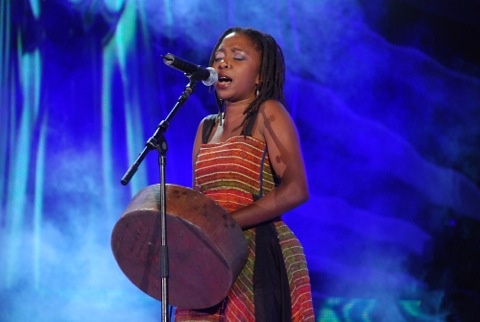 [/caption]
[/caption]Meanwhile, freeDimensional, an international organisation that finds safe havens for persecuted artists and cultural operators, organised a conference bringing together professional networks “that have activities at the intersection of arts, human rights and social justice and are interested in situations of persecuted or refugee artists denied freedom of expression and the free movement of artists and cultural workers overall.” The result was an informal coalition, International Coalition for Arts, Human Rights and Social Justice (ICARJ), created to share information, resources and expertise, as well as to strengthen political advocacy for arts and human rights issues. A follow-on to this international group has been the creation of a new European Union ‘Arts, Rights, Justice Working Group’ within the EU Culture Platform, ‘Access to Culture’, with a mission to propose recommendations to the European Commission and the Member States on relevant issues.
Key issues
The Summit gathered key players both from the earlier network idea and from ICARJ. The summit comprised a public conference with artists, activist networks and policy-makers followed by a 2 day working meeting. Participants outlined the social and political importance of artists’ free expression, the difficulties they face and the challenges of the organisations dedicated to helping them.
[caption id="attachment_19997" align="alignright" width="320" caption="Speakers at the Summit: Mike Van Graan, Ros Shelley, Marie Korpe"]
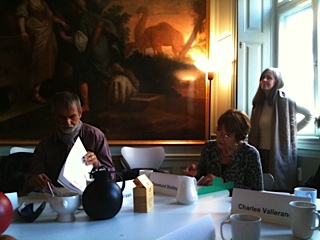 [/caption]
[/caption]Referring to the political changes in Europe, Denmark’s charismatic activist Minister of Culture, Uffe Elbaek, reminisced about the historic rock concert organised by young Nordic activists in Moscow shortly before the fall of the Berlin Wall in 1989. “Little did we know that the Wall would be coming down and that the kind of freedoms we had in the West would soon be spreading through the Soviet Bloc.”
South African playwright and activist, Mike Van Graan, General Secretary of the Arterial Network in Africa, focused on sombre contemporary realities asking: “Are basic rights only for the North or the rich? Are human rights essential to the growth of cultural industries or are they expendable and secondary to economic progress?” For Van Graan, “the discourse of solidarity has disappeared from the global arts space”.
Other participants like Per Stig MØller - former Danish Foreign, Environmental and also Culture Minister, Kolbrun Halldorsdottir - former Icelandic Environmental Minister and currently President of ECA - European Council of Artists, and Christine Merkel - Head of the Culture Division of German Commission for UNESCO discussed how to bring such issues to the political agenda. For Stig Muller, doubt is an essential component of political change, “There is no free expression without freedom to doubt, and doubt is linked inextricably to art.” Artists have “the right to be informed and to inform”, and ‘visibility’ - naming and shaming dictatorial regimes and highlighting cases of human right abuses – is effective. Christine Merkel urged human rights and arts organisations to work together to use existing tools more effectively and called UNESCO to "declare and deplore" cases where artists' freedom is threatened.
[caption id="attachment_19999" align="alignleft" width="320" caption="Speakers at the Summit: Kolbrun Halldorsdottir, Alfons Karabuda, Christine Merkel"]
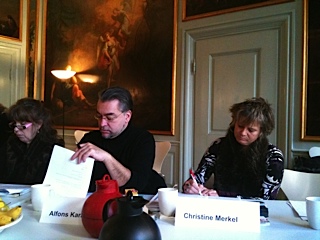 [/caption]
[/caption]The activities of several networks have been highlighted as well during the Summit. Since 1978, the International Committee for Artistic Freedom (ICAF) supports artists “facing censorship, exile, persecution, imprisonment, torture or death.” Another example of an artists’ association actively supporting their colleagues’ human rights was given by the European Composers and Songwriters’ Association (ECSA) who presented ‘Impossible Music Sessions’, an advocacy group who promote banned music and organised ‘the world’s first stealth music festival’ in Afghanistan.
Since 2005, freeDimensional has been also building a network to pragmatically address the urgent issues faced by artists in distress. They give training on psycho-social issues, source pro-bono legal aid or psycho-social care in the community, including services such as securing a visa for a threatened artist. Given the sensitive nature of fD’s work, the organisation often keeps a low profile to remain effective. Visas are also important for the work of International Cities of Refuge Network (ICORN), whose members are local authorities providing short or longer-term residencies for persecuted artists. ICORN works closely with International PEN, which provides reliable research necessary to assess cases.
To close the conference, Sara Whyatt of PEN’s Writers in Prison Committee and Ole Reitov of Freemuse, highlighted the necessity of high profile activities to draw attention to rights abuses, as well as of the more quiet, individual work of aiding persecuted artists and ensuring their safety. Reitov regrets the difficulty of reporting from threatened arts communities and highlighted the consequent need for more documentation, monitoring and direct contact regarding human rights violations. For Sara Whyatt, whose organization reports 600-700 writers under threat each year, it is essential not only to make cases visible and ensure artists receive support in emergency situations, but also to continue supporting them once the urgency is over. Similar to the news alerts issued by Freemuse and other freedom of artistic expression organizations, PEN’s Action Alerts serve as a critical tool for diffusing information, motivating supporters and increasing political pressure.
Reinforcing the remarks of all of the participants, Sara Whyatt pleaded for like-minded organizations and institutions to come together, share and collaborate internationally in order to be more effective in stopping human rights abuses of artists and cultural workers active in the struggle for democratic conditions in their countries.
Next Steps
Key to success in achieving the objective above will be the ability of such diverse organisations (from arts organisations to freedom of expression NGO’s) to identify common goals and strategies and transcend differences of approach. Freedom of expression as enshrined in Article 19 does not bow before questions of taste or moral relativity and arts organisations often prefer oblique references to direct confrontation with authority. However, there is urgent and important work to be done to improve legislation, visa regimes, donor’s programmes, public awareness, the arts sector’s capacity to protect its own workers and the human rights sector’s ability to understand the needs and dangers to artists whose voices are calling for freedom and justice.
The year ahead should see a welcome convergence of civil society initiatives in this area. In February the new EU ‘Arts, Rights, Justice Working Group’ starts its work, which should include mapping of relevant organisations and resources. Together with the Fritt Ord Foundation, Freemuse will organise a World Conference on Artistic Freedom of Expression to be held in Oslo 25-26 October 2012.
In the meantime, the Copenhagen Summit launched a resolution and established a working committee to prepare a concept for the much-desired global network.
Artsfex Resolution , Copenhagen 22 Dec 2011
At the Copenhagen Summit on Artistic Freedom of Expression, the undersigned organizations resolved that:
There is an urgent necessity to launch an international initiative to protect and promote freedom of artistic and creative expression (in the visual arts, music, dance, film, writers, theatre etc.) with the goal of increasing awareness about violations of freedom of expression in the arts among artists and the arts sector, in the media, among political bodies, human rights and free speech organizations, as well as among the general public.
This initiative will:
- serve as an information exchange
- monitor and analyse censorship in the arts worldwide with the goal of identifying trends and creating an understanding of the various mechanisms of censorship and persecution of artists for their creative work
- publicly expose the persecution and censorship of artists
- advocate in support of artistic and creative freedom worldwide
- hold governments accountable to their obligations under the relevant international conventions and national laws
- direct artists in distress to existing information, funding and other resources for emergency and ongoing support and facilitate their relationship with relevant funders and defenders of human rights
Participating organisations/signatories
Arterial Network
Danish PEN
European Composer and Songwriter Alliance
UK Equity
European Council of Artists
The International Federation of Actors (FIA)
The European Federation for National Associations of Television and Cinema Directors (FERA)
freeDimensional
Freemuse
Index on Censorship
International Committee for Artistic Freedom (ICAF)
International Federation of Coalitions for Cultural Diversity
International Network for Contemporary Performing Arts, IETM
PEN International
National Coalition Against Censorship, USA
Similar content
from - to
09 Dec 2011 - 11 Dec 2011
posted on
28 Feb 2017
posted on
08 Apr 2013
from - to
01 Sep 2018 - 08 Sep 2018
posted on
04 Dec 2010
posted on
16 Apr 2020

